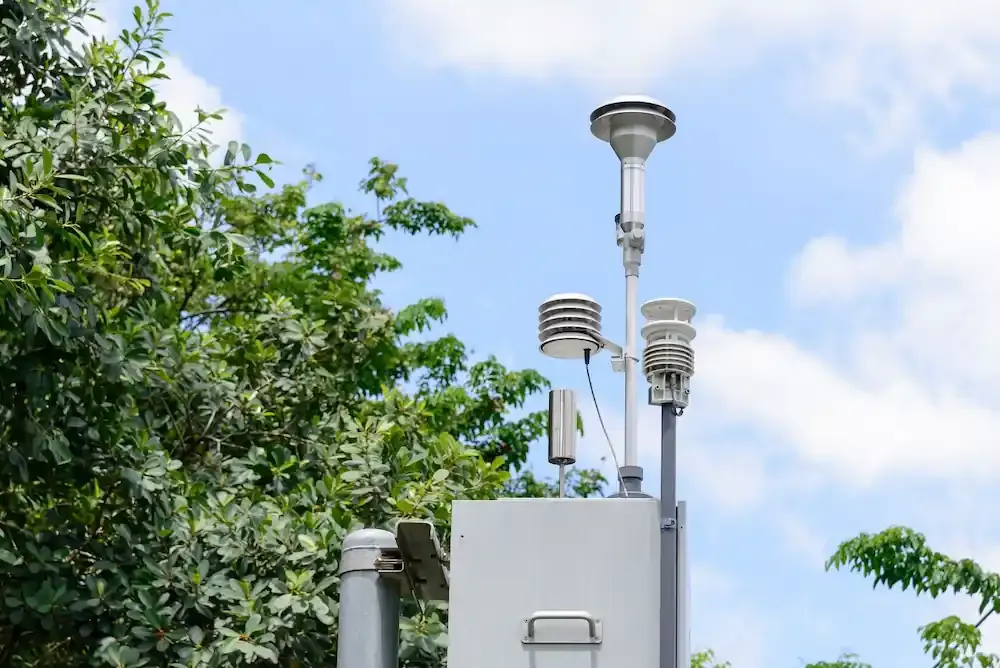Why air quality?
Air pollution is the 2nd leading risk factor for death and the leading environmental contributor to death worldwide, contributing to more than 8 million deaths in 2021 1. Up to 99% of us are breathing polluted air 2, cutting lives short by an average of 1.9 years across the globe 3.
Air pollution impacts our health in many ways, starting when we’re in the womb. Air pollution impacts practically every organ in the body and is associated with acute and chronic cardiovasculatory and respiratory illnesses, as well as increased incidence of lung cancer, diabetes, and poor birth outcomes. 4
The burden of air pollution is unequal, with some people being far more vulnerable and some breathing far more polluted air. For example, children are particularly susceptible to air pollution’s insidious effects—they breathe more rapidly than adults, taking in more polluted air, and are proportionally exposed at higher levels due to their small bodies and developing organs. Every single day, around 2,000 children under the age of 5 die from breathing polluted air. 5
Marginalized communities are also unfairly burdened. Not only is the air they breathe typically more polluted, but they are also more susceptible to air pollution due to experiencing other poor health conditions caused by the broader social and environmental context in which they live. Structural racism and the legacy of colonialism play a large role in creating these health conditions and allowing for higher levels of exposure.

Addressing air pollution has many benefits above and beyond better health.
- A more stable climate: Several pollutants both harm health directly and warm the planet. And because fossil fuels are not only the major source of greenhouse gases, but also a primary source of air pollution, reducing fossil fuel consumption is a win-win proposition.
- Improved food security: Cleaner air improves crop yields.
- Healthier ecosystems, plants, and animals: Air pollutants contaminate not only air, but also water and soil. Reducing air pollution therefore supports ecosystems broadly, allowing them to perform services that support all living beings.
- Greater social equity: Reducing air pollution has even greater positive impacts for people who are disadvantaged socioeconomically and/or are disproportionately exposed.
- Stronger economies: Cleaner air results in a healthier, longer-lived workforce.
- Clearer views: Smog reduces visibility.
- Preservation of culturally significant buildings and monuments: Certain air pollutants form acid rain that not only harms living beings, but also degrades certain building materials.
Air Quality Data
Despite the urgency of confronting this global challenge, only 61% of governments worldwide produce air quality data, leaving over 1 billion people without access to fundamental information that could protect them from the harmful effects of air pollution.6
Reliable data on air pollution are fundamental to understanding and taking corrective action to improve air quality. Air quality data underpin all actions on air pollution. They tell us how much pollution is in the air we breathe. They predict how air pollution will change in space and time. They shape our understanding of how air pollution impacts human health, climate change, ecological health and economic well-being.
Air quality data serve as an important foundation for the design, implementation, enforcement and assessment of the effectiveness of pollution control policies. Access to air quality data is critical for public, private and civil society initiatives to improve the air we breathe. Accurate, timely and sustained monitoring provides the evidence needed to develop targeted solutions to air pollution.

How OpenAQ Helps
Anyone can use the OpenAQ platform for free to find out what air quality data monitoring is occurring in or near their community and use that information to advocate for increased monitoring where needed and to advocate for air pollution solutions.
Likewise, anyone can use the data platform or the OpenAQ Explorer Tool for analysis, from basic interpretations to in-depth analyses using the API.
For organizations deploying air quality monitors, OpenAQ can ingest and share the data from these projects on the OpenAQ platform to ensure data is broadly accessible.
Learn More
Check out the UN’s 24 Frequently Asked Questions about air pollution.
References
Footnotes
-
State of Global AIr: Global Health Impacts of Air Pollution, Health Effects Institute and Institute for Health Metrics and Evaluation’s Global Burden of Disease project ↩
-
Air Quality Life Index 2024, Energy Policy Institute at University of Chicago ↩
-
Health Impact of Air Pollution, American Lung Association ↩
-
Clean Air, Healthy Children, UNICEF ↩
